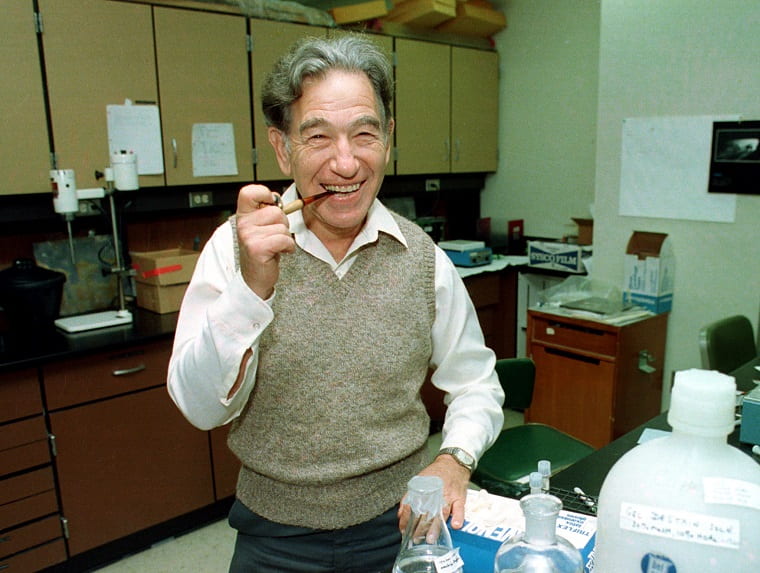Stanley Cohen, a Brooklyn-born biochemist who shared the 1986 Nobel Prize in medicine for the discovery of chemicals that promote and help regulate the growth of cells — research that greatly advanced science’s understanding of cancer, dementia and other maladies — died on Wednesday in Nashville. He was 97.
Vanderbilt University announced his death, at a retirement community. Dr. Cohen was a professor emeritus of biochemistry at Vanderbilt, in Nashville.
In the 1950s, working at Washington University in St. Louis in the laboratory of Viktor Hamburger, a pioneer in the study of nerve growth, Dr. Cohen was among a small cadre of scientists who sought to unravel the basic mechanisms underlying cell growth, and to crack one of the most baffling medical puzzles of that era: How do developing cells reach out and connect to others, forming neural networks?
A close university colleague, the developmental biologist Rita Levi-Montalcini, discovered the answer: The cells form these networks through the production of a protein known as nerve growth factor, or NGF. It was the first time a biochemical agent that controlled cellular growth had been isolated.
Dr. Cohen identified receptors on the cell surface on which the growth factor acts, explaining how such proteins can change the biology and behavior of individual cells. His efforts brought a clearer understanding of how growth factors stimulate cells to grow, divide and respond to chemical messengers.
His work on NGF led to his own discovery — of epidermal growth factor, or EGF, which has applications in medicine for wound healing, cancer therapy and the growth of transplanted skin in severe burn cases.
Dr. Cohen’s breakthrough with EGF began with mice.
In the laboratory, he injected newborn mice with a chemical extract, containing nerve growth factor, that had been taken from adult mice. Newborn mice ordinarily first open their eyes when they are about two weeks old. But Dr. Cohen saw that after the newborns received the growth factor, they opened their eyes on about the seventh day. Moreover, he found that their teeth had started to come in earlier than normal.
“It was very simple thinking,” he told The New York Times in 1986. “We were speeding up a natural process, and since nature has spent so many millions of years perfecting her processes, it must be of interest to know how we change the normal program.”
The EGF receptor has since become central to the development of drugs for various forms of cancer. And EGF-like proteins and their receptors have been studied as potential aids to preventing heart failure, slowing the advance of kidney disease and fostering liver regeneration.
“Dr. Cohen’s discovery of the EGF receptor has revolutionized the care and outlook for millions of cancer patients worldwide,” Dr. Jeffrey R. Balser, the president and chief executive of the Vanderbilt University Medical Center and dean of the Vanderbilt School of Medicine, was quoted as saying by Vanderbilt News, a campus online publication, after Dr. Cohen’s death.
In awarding Dr. Cohen and Dr. Levi-Montalcini the Nobel Prize in Physiology or Medicine, the Nobel committee in Stockholm credited their work with opening a window on neurodegenerative disorders like Alzheimer’s disease.
